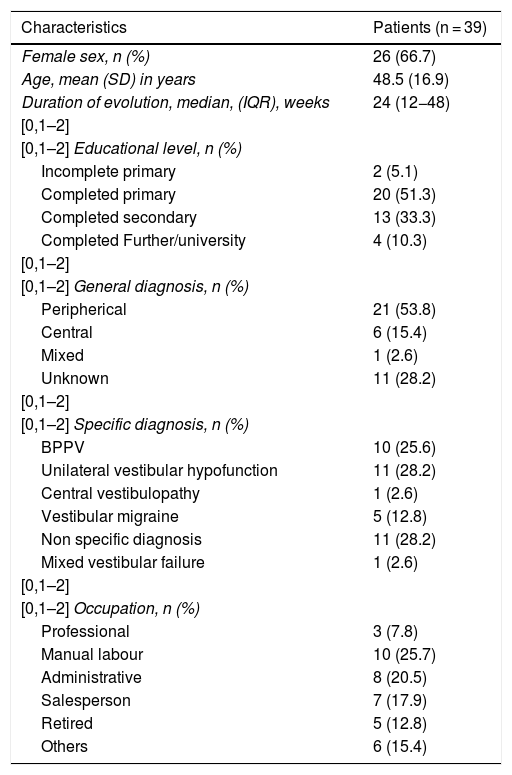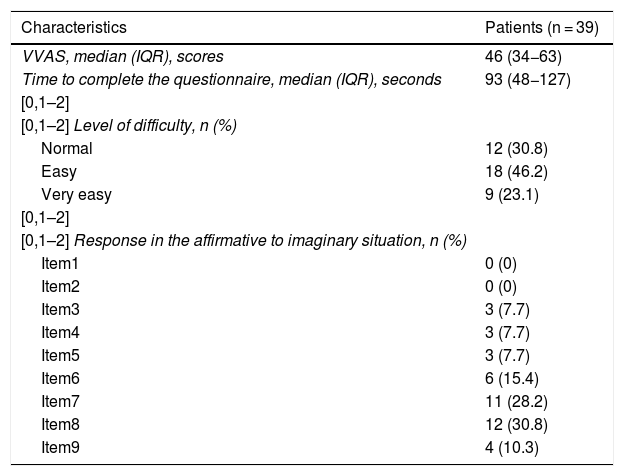Visual dizziness occurs when high visual dependence interferes with compensation for a vestibular lesion and leads to intolerance in situations of visual conflict. The Visual Vertigo Analogue Scale (VVAS) is a self-administered, valid and reliable questionnaire that serves to assess visual dizziness.
The use of questionnaires in different cultures and languages requires that they be translated and adapted to the local culture. There is no version of the VVAS in Argentina. The objectives of this study were to translate and carry out a cross-cultural adaptation of the VVAS into Spanish for use with vestibular patients in Argentina.
Materials and MethodsThis study was carried out from November 2015 to January 2016 in the Kinesiology Service of a public hospital in the city of Buenos Aires. Patients were Argentines older than 18 years who suffered from a vestibular disorder. The translation and cross-cultural adaptation were based on the guide to the process of cross-cultural adaptation of self-administered measurements by Beaton et al.
Results39 patients were included in the VVAS cross-cultural adaptation process. All changes made by the committee of experts were for the purpose of ensuring the semantic, idiomatic, experimental and conceptual equivalence of the two versions.
ConclusionThe original version of the VVAS has been translated into Spanish and adapted for use in the Argentine population with vestibular disorders.
: El mareo visual surge cuando la compensación de la lesión vestibular se ve interferida por una alta dependencia visual, lo que lleva a una intolerancia en situaciones de conflicto visual. El Visual Vertigo Analogue Scale (VVAS) es un cuestionario autoadministrado, válido y confiable que evalúa específicamente el mareo visual.
El uso de cuestionarios en culturas y lenguas diferentes requiere que los ítems sean traducidos y adaptados culturalmente. No existe una versión del VVAS en Argentina.
Los objetivos del trabajo fueron traducir y adaptar transculturalmente el VVAS al castellano para su uso en la población argentina en pacientes con desordenes vestibulares.
Materiales y métodosSe llevó a cabo desde noviembre de 2015 y enero de 2016 en el Servicio de Kinesiología de un Hospital público de la Ciudad de Buenos Aires con pacientes argentinos mayores de 18 años que presentaban algún desorden vestibular. El proceso de traducción y adaptación transcultural se basó en la guía del proceso de adaptación transcultural de mediciones autoadministradas de Beaton et al.
ResultadosSe incluyeron 39 pacientes para la adaptación transcultural del VVAS. Todas las decisiones de los cambios realizados por el comité de expertos fueron para asegurar la equivalencia semántica, idiomática, experimental y conceptual entre las versiones.
ConclusiónSe ha traducido y adaptado con éxito la versión original del VVAS al castellano para ser utilizado en la población argentina con desordenes vestibulares.











